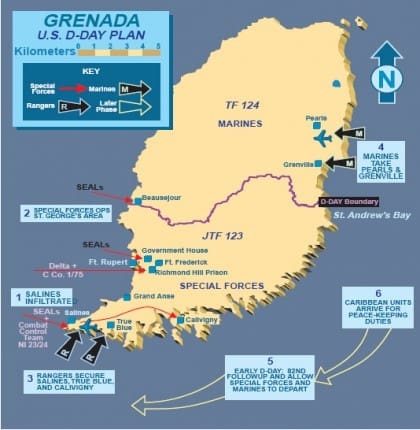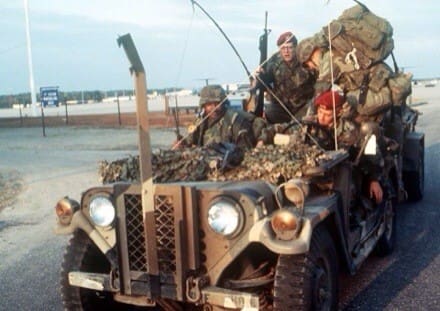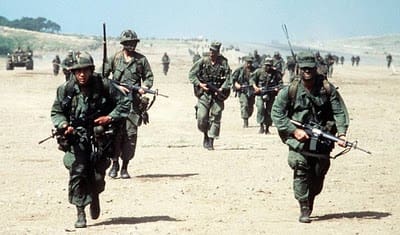On the morning of October 25th, 1983, America awoke to reports that US forced had invaded the small Caribbean nation of Grenada, in order to liberate American medical students from danger posed by political instability. Joined by Regional Security System troops from a variety of Caribbean partner nations, they swiftly overwhelmed the Grenadian and Cuban troops. While Operation Urgent Fury was in name, a joint force operation, and included the use of Special Operations Forces, it highlighted many interoperability challenges, such as use of joint operational overlays and communications issues.
Several stove pipe problems suffered by the pre-Goldwater-Nichols military were identified during this operation. Additionally, Urgent Fury was conducted with many systems dating from the Vietnam war.
Just six years later, during the invasion of Panama, saw the first employment of several new weapons developed during the Reagan buildup such as the F-117 stealth fighter and the Marine Corps LAV-25. Grenada was a great learning experience for the US military as it highlighted issues with joint service operations, particularly in the communications arena as well as interoperability between Special Operations and General Purpose forces. For example, SOF also took a much more prominent role in operation Blue Spoon during the Panama invasion. We’ve come even further in the past three decades.
Finally, as with any conflict, lives were lost. Let us not forget the 19 Americans killed in action and the 116 who were wounded. Unfortunately, there were also 24 Grenadian civilians killed in the conflict.





The invasion was to prevent the Communists from turning Grenada into an airbase, the US medical students were just a convenient excuse.